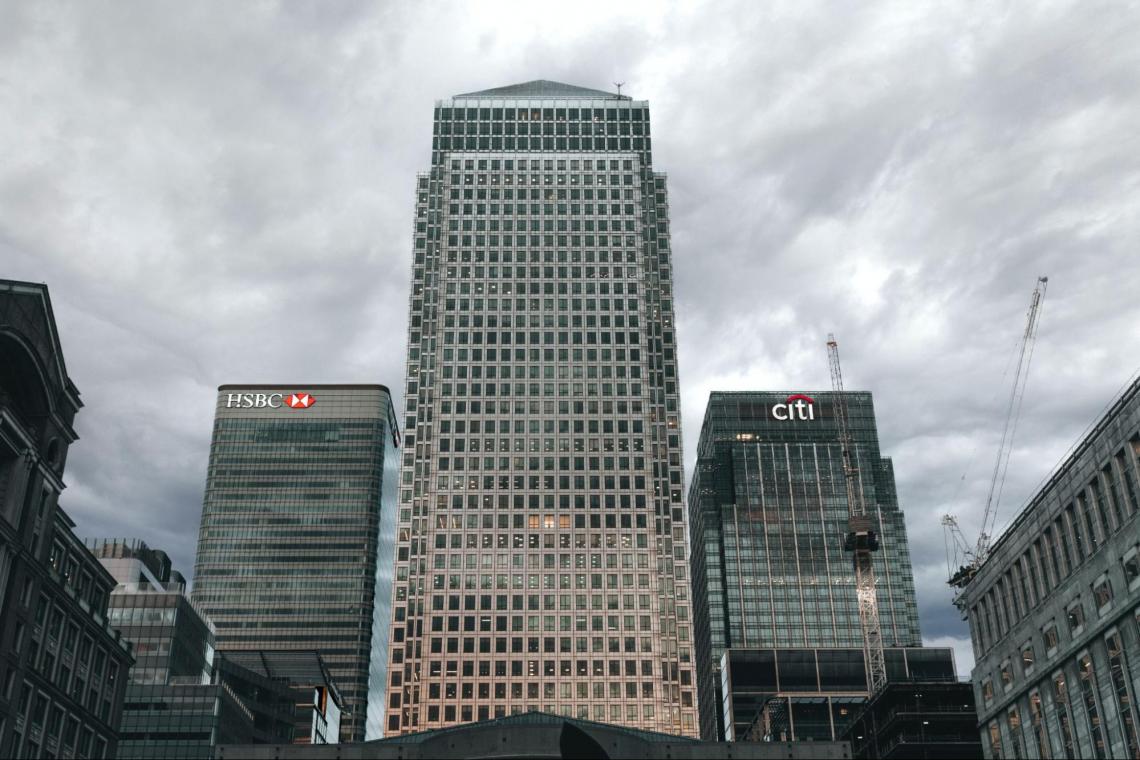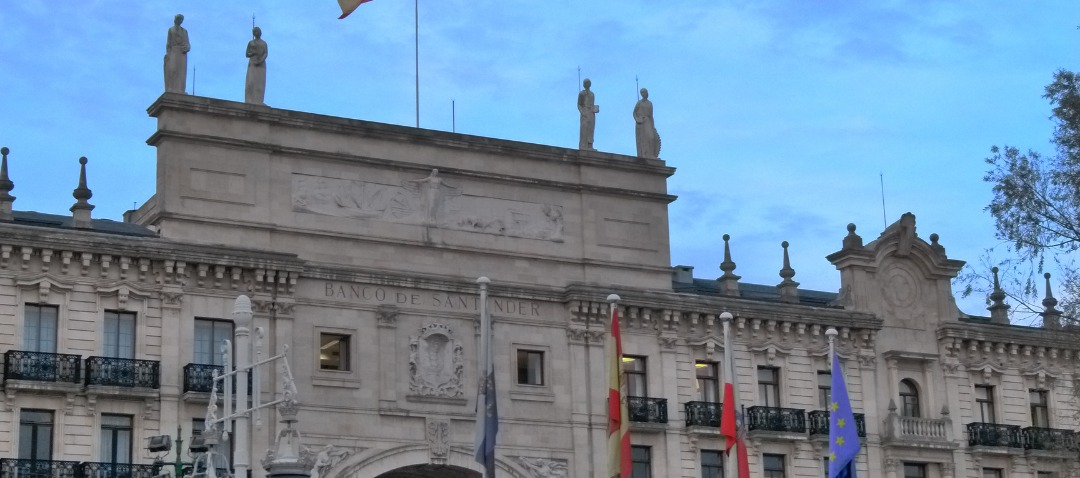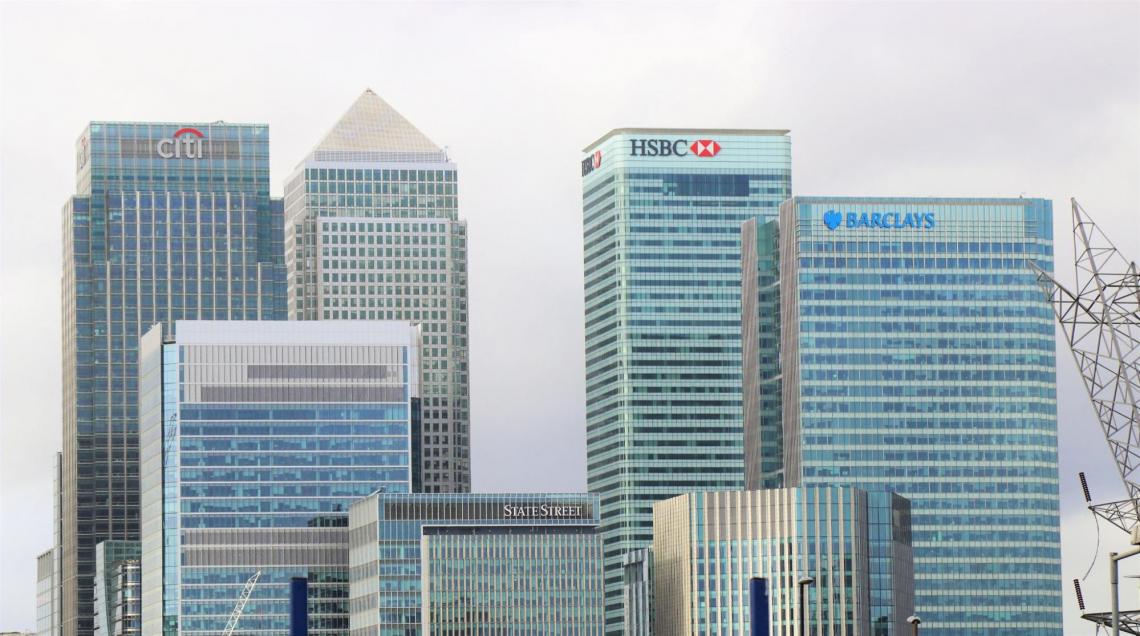Top Banks in the UK
Few major banks of the UK
Numerous private banks, foreign banks, and credit unions make up the country's banking industry. However, the sector is dominated by a select few major banks that compete for market share. There are currently more than 340 banks and 52 credit unions operating in the UK.

Internet and mobile banking have steadily grown in popularity in the UK in recent years, with almost 60% of adults using online banking and 40% using mobile banking.
However, there are still some 20,000 physical banking facilities, which are still very popular.
The Bank of England, a state-owned institution since 1946, serves as the nation's central bank. The Financial Conduct Authority oversees banks in the country.
The country has acted as one of Europe's principal financial hubs for a very long time.
Residents have a variety of banks to pick from, and each one offers a variety of packages catered to a distinct consumer base, from retail to commercial to private banking.
Despite being a member of the EU since the 1970s, the UK chose not to adopt the euro as its official currency. Instead, they continue to use the British Pound Sterling as their official currency (GBP).

Pounds and pence (100 pence to a pound) are available as coins and notes. The notes are now constructed of polymer to make them extremely durable and difficult to counterfeit. Notes are now undergoing various revisions.
UK Economy
The UK has a fiercely autonomous, advanced, and global trade economy at the forefront of the Industrial Revolution in the 19th century. With a crippled manufacturing sector, the nation left World War II as a military victor.

The British economy didn't greatly increase its competitiveness until over 40 years after the end of World War II, with extra support coming from membership in the European Economic Community in 1973.
The 1990s had favorable economic growth rates compared to other leading industrial nations. However, the share of manufacturing in GDP has decreased to around one-fifth of the total, with services being the main driver of growth.
The EU came to represent more than half of the UK's trade in physical goods as its primary trading partners changed from its former empire.
Japan likewise increased its investment in domestic production, while the United States remained an important trading and investment partner.
In addition, the open market in the United Kingdom was one of the region's key markets for other rapidly industrializing East Asian nations with export-driven economies.

The United Kingdom has long been a financial hub, especially London.
During the 1980s and 1990s, the financial system saw significant restructuring and deregulation, which resulted in significant changes to the banking, insurance, London Stock Exchange, shipping, and commodity markets.
Some established divisions between financial entities have become fuzzier over time.
For instance, building societies used to be largely responsible for home loans, but, more and more, banks and insurance firms are now involved in this lending.
Additionally, building societies take a small role in providing insurance, trustee, executor, and land services. Finally, individual savings are invested through a number of organizations, including insurance firms, pension funds, investment and unit trusts, etc.
Finance companies are the main suppliers of business financing, leasing, and home mortgages.

Additionally, some firms finance the leasing of commercial equipment.
This includes firms that give creditors quick cash and then pursue unpaid corporate debts and finance firms that bolster the medium- and long-term capital markets that banks or the stock market would otherwise supply by investing in high-risk or innovative businesses.
The economy has historically been heavily dependent on trade. Among the main British exports are machinery, cars, other forms of transportation, electrical and technological equipment, chemicals, and oil.
Another significant export for Britain is services, notably financial services, which help to balance the country's trade. One-tenth of the nation's food supply and one-third of its industrial and transportation equipment are imported.
Top Banks in the UK
Some of the banks are:
- HSBC Holding || HSBC
A global British bank and provider of financial services, HSBC has around 7,500 offices spread across more than 80 countries worldwide in Europe, the Asia-Pacific region, the Americas, the Middle East, and Africa, making up HSBC's global network.
One of the four principal clearing banks in the UK is HSBC Bank plc, a fully owned subsidiary of HSBC Holdings.

The company offers various services, including private banking, consumer finance, corporate and investment banking, and the conventional high street functions of personal finance and commercial banking.
The bank runs about 1800 facilities in the UK under all of its brands.
Total Assets: GBP 2.96 Trillion || 2021
- Barclays PLC || BPLC
Barclays is a multinational universal bank with its corporate office in London, England. With the assistance of their service provider, Barclays Execution Services, Barclays conducts business as two subsidiaries, Barclays UK and Barclays International.
The British retail banking sector, consumer credit card business, wealth management business, and corporate banking for small and medium-sized firms in the country are all included in Barclays UK's suite of offerings.
The Consumer, Cards & Payments business and Barclays Corporate and Investment Bank make up Barclays International.
Large corporations, institutions, and government clients can obtain advising, funding, and risk management services from the investment banking industry.
Total Assets: GBP 1.38 Trillion || 2021
- Lloyds Banking Group || LBG
Lloyds Bank is a British retail and business bank located all over England and Wales. Historically, it has been categorized as one of the top 5 clearing banks.
The largest retail bank in the United Kingdom, Lloyds Bank has a vast network of locations and ATMs in England and Wales.

It also provides 24-hour telephone and online banking services. The bank managed a total of 16 million accounts for both small businesses and individuals as of 2012.
Total Assets: GBP 869.50 Billion || 2021
- Standard Chartered PLC || SC
Standard Chartered plc, a worldwide British bank and provider of financial services is based in London, England. It employs about 87,000 people and runs a network of more than 1,200 branches in more than 70 countries.
It is a universal bank that offers treasury services in addition to consumer, business, and institutional banking.
Despite having a UK headquarters, it does not handle retail banking there, and the Middle East, Africa, and Asia account for about 90% of its profits.
Total Assets: GBP 804.90 Billion || 2021
Schroders || SB
Established in 1804, Schroders plc is a British international asset management firm. In 32 locations in Europe, America, Asia, Africa, and the Middle East, the organization employs more than 5,000 employees worldwide.
Its corporate headquarters are in the City of London. It is also listed on the London Stock Exchange.
Total Assets: GBP 574.4 Billion || 2021

The Royal Bank of Scotland is a significant retail and business bank in Scotland. It belongs to the NatWest Group's retail banking businesses along with NatWest and Ulster Bank.
The Royal Bank of Scotland has about 700 locations, most of which are in Scotland, although there are also locations throughout England, Wales, and many larger towns and cities.
The Bank of Scotland, which shared an Edinburgh address with the Royal Bank and was founded 32 years earlier than the Royal Bank, is not affiliated with the bank in any way.
Total Assets: GBP 310.3 Billion || 2021
- Santander UK || SUK
The Spanish Santander Group owns all of the British bank Santander UK. Santander plc operates independently, with a local management team fully accountable for the company's results.

Santander UK is one of the top providers of savings accounts and mortgages in the UK and is also a top provider of personal financial services. The bank employs about 20,000 people and has 64 corporate business centers and 14 million active customers.
Total Assets: GBP 287.6 Billion || 2021
- NationWide Building Society || NWBS
With more than 15 million members, the Nationwide Building Society is the biggest building society in the world and a British mutual financial institution. It is also the sixth largest cooperative financial institution.
The company's main office is in Swindon, England. Over a hundred mergers led to the creation of Nationwide, the two most famous of which were its mergers with Portman Building Society in 2007 and Anglia Building Society in 1987.
With a 7.7% market share in current accounts, it is the UK's second-largest provider of mortgages and household savings.
Total Assets: GBP 254.91 Billion || 2021

- Coventry Building Society || CBS
In Coventry, England, there is a building society called the Coventry Building Society. With more than £51 billion in total assets as of the end of 2020, it is the second-largest building society in the UK.
The Building Societies Association recognizes it as a member. There are 1.5 million saver members and 350,000 borrower members in the society.
Total Assets: GBP 51.5 Billion || 202
Close Brothers || CB
Close Brothers Group plc, a UK merchant bank, offers loans, deposit taking, wealth management, and securities trading. The business is also listed on the London Stock Exchange.
Total Assets: GBP 11.1 Billion || 2021




or Want to Sign up with your social account?